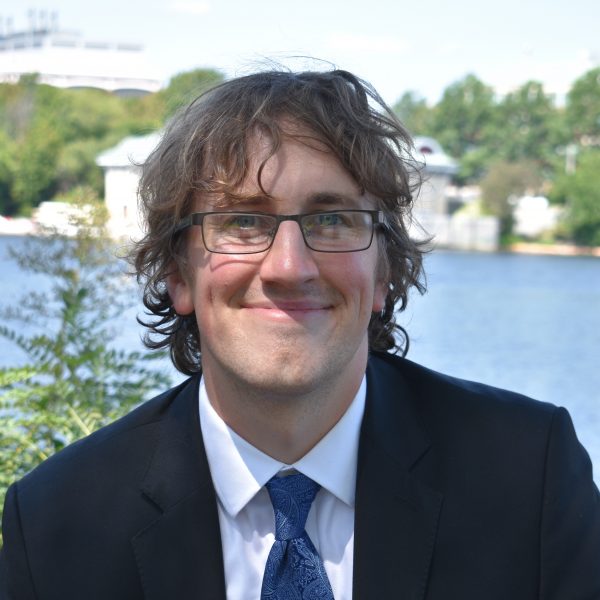Interdisciplinary Methods: A Conversation with PhD Student Scott Donahue-Martens
One of the defining features of the field of practical theology is its commitment to interdisciplinary methods of inquiry. While practical theologians do not always agree upon the nature of interdisciplinary research, or the viability of certain interdisciplinary paradigms, most practical theologians do affirm the importance of interdisciplinary dialogue. This semester, first and second year PhD students in Practical Theology at the School of Theology received the opportunity to take a course called Interdisciplinary Methods instead of the usual required course, Advanced Research in Practical Theology. The course on interdisciplinary methods is taught by constructive theologian, Dr. Shelly Rambo, whose own work has featured a commitment to interdisciplinarity. The class consists of Track 3 (Practical Theology) students, as well as Track 2 (Theology, Ethics, and Philosophy) students, who work together to evaluate various methods and paradigms featured across course readings. 
Last week, Amy McLaughlin-Sheasby, CPT Today Editor, sat down with current Interdisciplinary Methods student, Scott Donahue-Martens (second year PhD student in Practical Theology), to discuss how the course is shaping his work as a practical theologian.
Amy: As I understand, Interdisciplinary Methods was offered this semester instead of Advanced Research in Practical Theology. Can you tell me a little bit about your experience of the course so far, and what this course is offering to you as a practical theologian?
Scott: A lot of the readings so far are readings from disparate fields and different approaches to theology. But a lot of what we are doing is actually reading the books for their interdisciplinary approaches, rather than just for the content itself. So, in some ways, we have had to learn a new evaluative skillset, where we are not just looking for the point the author is trying to make, but how they are making their point. We ask what sources they are drawing from, whether or not they are doing it responsibly, and how they are engaging scholars in other fields.
Amy: What is it like to have Dr. Rambo, a constructive theologian, guide you, a practical theologian, into analysis of interdisciplinary methods? Is it helpful to have someone outside of your field teaching interdisciplinary methods?
Scott: Yes, I think so. One of the things Dr. Rambo has us do is write analytical papers for most of the sessions, so we all form our own opinions and ideas. Throughout the papers we have to talk about the interdisciplinary methods. The reality is that each of us ends up talking a little bit from our own field and our own perspective. Then Dr. Rambo goes around the table, and has each person one at a time give some sort of insight from the work or method being discussed. Usually she asks a particular question that allows us to explore some facet of the reading. But the interesting thing about that approach is that it allows each of us to experience each other’s voices and their connection to our respective fields. There are definitely some similarities between the things the practical theologians share, and it is interesting to see how practical theologians tend to gravitate toward certain texts, but not other ones. Sometimes the people in the other disciplines may not like some of the texts that are more natural for practical theology, for example, texts that afford a larger role for experience, or demonstrate how practices shape theory, rather than just theory shaping practice.
Scott went on to share about how Dr. Rambo and the students from Track 2 have helped him to assess his own operative paradigms. Scott is a homiletician who works closely with the field of hermeneutics. He is particularly interested in the work of Paul Ricoeur, and is eager to explore how Paul Ricoeur’s hermeneutics will contribute to his burgeoning research questions. Scott notes that homiletics as a field has not always promoted responsible interdisciplinary methods. Many homileticians have normalized appropriation, or to use Scott’s more indicting word, raiding of other disciplines without careful consideration for what is lost or compromised in the process. Scott is hopeful that this course will help him resist such tendencies in his own work. My last question for Scott was, “What do you think is the promise of interdisciplinary methods for academia as a whole?” Scott responded, “I think part of the promise is honesty—honesty about the fact that we don’t ever interpret purely from one position, and honesty about the limitations that come with specialization. Also, interdisciplinarity helps us to be honest about the limitations of our own fields for discerning truth and constructing meaning.”